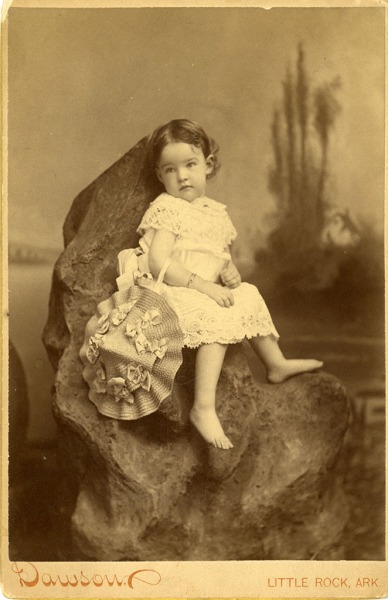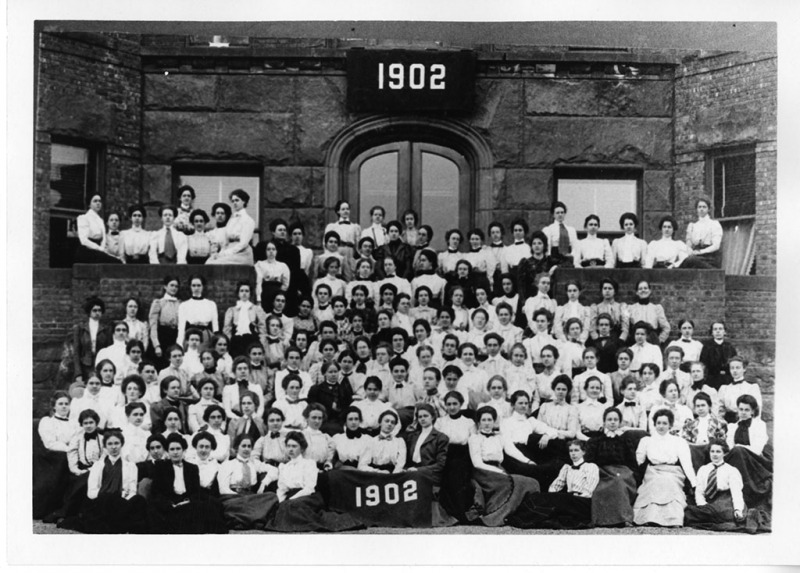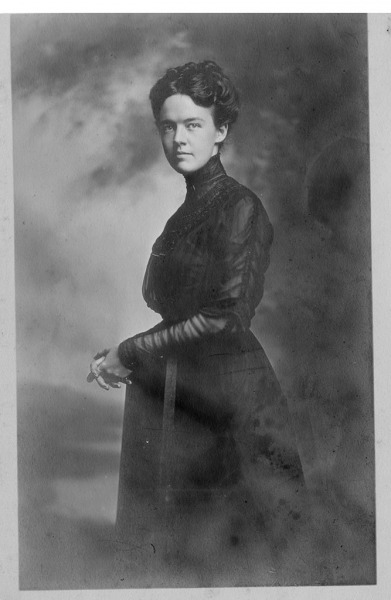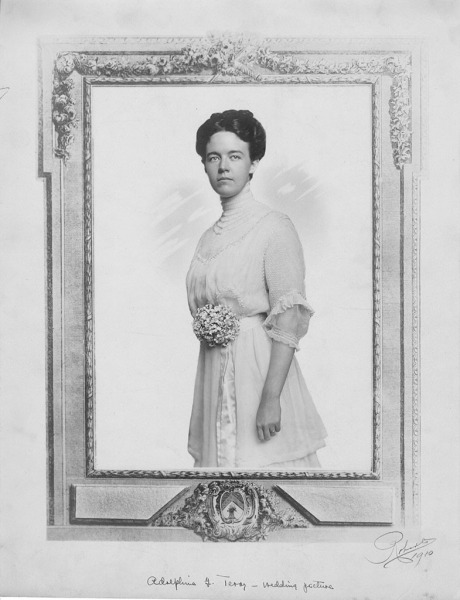Adolphine Fletcher was born on November 3, 1882, in Little Rock, Arkansas, to parents John Gould and Adolphine Krause Fletcher. After graduating from Peabody High School in 1898, she entered Vassar College in Poughkeepsie, New York, only the second Arkansan to attend the prestigious school.
Adolphine married Little Rock lawyer and future Congressman David D. Terry (1881-1963) in 1910. The couple went on to have four children, David Jr., Mary, Sarah (Sally), William (Bill), and later adopted a fifth, Joe. David’s sister, Mary Louise Terry, also lived with the family after the death of both their mother and stepmother.
Soon after the birth of her first child, local Judge Joseph Asher appointed Terry as chairman of the Pulaski County Juvenile Court Board. The board’s task was to establish the county’s first juvenile court and reform facility. Terry was tremendously hands-on in the early years of the court, including the appointment of initial probation officers and formation of the Girls Industrial School. She continued to serve on the board for 19 years.
Terry downplayed her participation in the suffrage movement, preferring instead to praise the activities of her sister, Mary Fletcher. She was active with the Political Equality League of Little Rock alongside her sister, however, and participated in marches, programs, and legislative events. She successfully applied lessons learned during this momentous movement to future interactions with lawmakers and the media. Later, she served as an original member of the League of Women Voters in Pulaski County. Writing about the right to vote in her autobiography, Terry said, “To me, the vote represents more than just saying how a person feels about an issue of a candidate, it represents human dignity. . .”
Never one to sit on the sidelines, Terry continued to be active in other areas of the community. Terry organized or helped to organize the Community Chest (a forerunner of the United Way), the Little Rock Housing Authority, the College Station Head Start Program and Community Center, the Little Rock Women’s City Club, the Arkansas State Festival of Arts, and the Pulaski County Tuberculosis Association. She served as an advisory committee member during the formation of the Phyllis Wheatley YWCA, the African-American branch located in Little Rock.
She was instrumental in the development of a free library system in Arkansas in the 1930s through her work with Arkansas American Legion Auxiliary and served as a trustee of the Little Rock Public Library until her retirement in 1966. A branch of the Central Arkansas Library System named in her honor.
Terry is perhaps best known for her work with the Women’s Emergency Committee to Open Our Schools (WEC) during the Central High Desegregation Crisis. As the situation with the Little Rock school unfolded, Terry used her influence to reach out to local leaders encouraging them to get involved. Following the closure of the public schools by Governor Faubus in September 1958, Terry joined with Vivion Brewer and Velma Powell to form the WEC, an organization committed to reopening the schools and the first organized white opposition to the segregationists. Terry brought her influence and experience to the group, working almost in an advisory role. Her work with the WEC was the capstone of a lifetime commitment to social activism.
Adolphine Fletcher Terry died in Little Rock, Arkansas, on July 25, 1976 at the age of ninety-three.
Bayless, Stephanie. Obliged to Help: Adolphine Fletcher Terry and the Progressive South. Little Rock: Butler Center Books, 2011.
Fletcher-Terry Papers. Center for Arkansas History and Culture. University of Arkansas at Little Rock, Little Rock, Arkansas.
Stephanie Bayless is the Director of the National Archives at San Francisco and author of "Obliged to Help: Adolphine Fletcher Terry and the Progressive South." She is certified archivist with an MA in Public History from the University of Arkansas at Little Rock. Prior to her position with NARA, she worked as an archivist at the Butler Center for Arkansas Studies.




